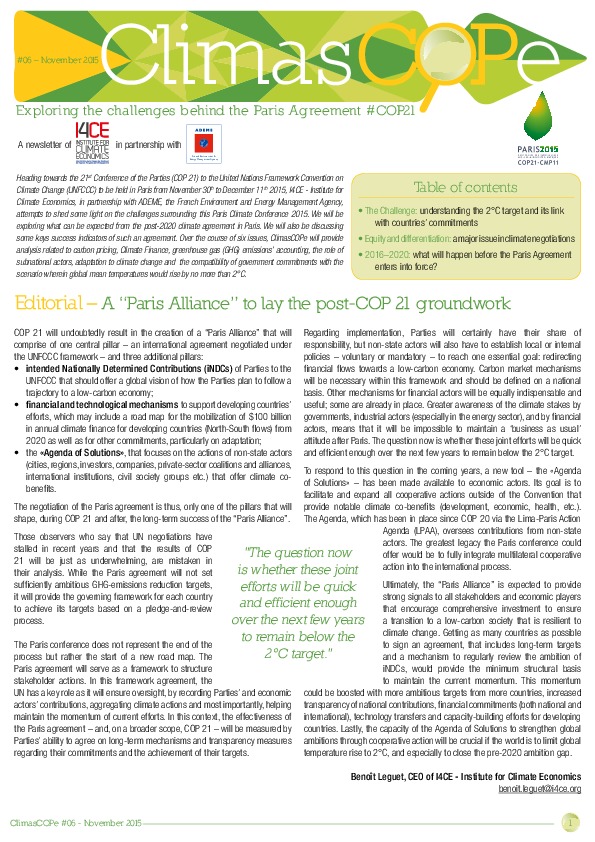2°C target and states’ commitments
For our sixth and final issue of ClimasCOPe, we would like to provide you with a short-publication that includes four key topics to consider on the eve of COP 21. The issue starts with an editorial titled “A Paris Alliance to lay the post-COP 21 groundwork” by Benoît Leguet. Then our experts attempt the delicate endeavour of deciphering the link between countries’ commitments and the 2°C target. Our experts then go further to examine the issue of equity and differentiation to better understand the differentiated responsibilities of countries. Last but not the least, we have also taken into account the 2016-2020 period to better evaluate means to strengthen pre-2020 ambition through cooperative action by all economic actors (State and non-state actors).

